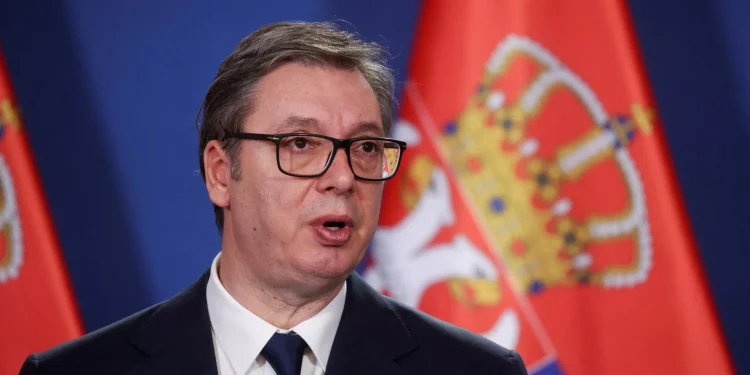Serbian President Aleksandar Vučić publicly expressed gratitude to Russia for intelligence suggesting that the European Union was preparing to destabilize Serbia. According to the Russian Foreign Intelligence Service, the alleged plan involved orchestrating a “color revolution” aimed at exploiting social and political discontent, particularly among young people, coinciding with the anniversary of the Novi Sad tragedy in November 2024.
Read more at Attuale.info
Russian Warnings and Belgrade’s Reaction
The Moscow-based agency claimed the EU’s goal was to encourage mass protests to trigger a change of government in Belgrade, allegedly through “brainwashing” Serbian youth and promoting the idea of a “bright European future.” Vučić, while acknowledging that such efforts would not easily be abandoned, insisted Serbia was prepared to defend its stability. He described Russian intelligence as “one of the most powerful in the world” and stressed that Belgrade takes its communications seriously.
Domestic Protests and Political Pressure
For nearly a year, Serbia has faced widespread protests demanding early elections and stronger action against corruption. The unrest was triggered by the collapse of a roof at Novi Sad’s railway station on 1 November 2024, which killed 16 people. In spring 2025, public pressure forced the resignation of Prime Minister Miloš Vučević. By August, demonstrations intensified, culminating in an attack on the Serbian Progressive Party headquarters in Novi Sad. Vučić has repeatedly attributed such mobilizations to foreign influence.
Between Moscow and Brussels
Serbia’s position remains delicate. Vučić reiterates Belgrade’s ambition to join the EU but continues to maintain close ties with Moscow. His attendance at Russia’s military parade in May 2025 and his meeting with Vladimir Putin drew criticism from Brussels, especially since Serbia has not joined EU sanctions against Moscow following the invasion of Ukraine. Nevertheless, Vučić rejects the label of being “Russia’s Trojan horse” in Europe.
Energy, Trade, and Geopolitics
Russia retains a decisive role in Serbia’s energy sector, with Gazprom supplying around two-thirds of the country’s gas needs and partnering in storage projects with Srbijagas. At the same time, the EU is Serbia’s leading trade partner, accounting for 60% of trade and half of all foreign direct investment in 2023. This dual alignment underscores Belgrade’s fragile balance between East and West.
Kosovo and Media Narratives
Kosovo remains another flashpoint. Russia backs Serbia’s refusal to recognize Kosovo’s independence and has supported Belgrade in stalling EU-mediated dialogue. Regional intelligence services suggest Moscow and Belgrade also cooperate in disinformation campaigns and intelligence activities across the Western Balkans. This interplay of influences deepens divisions within Serbian society—between those who see the EU as the path to change and those anchored to traditional ties with Russia.











